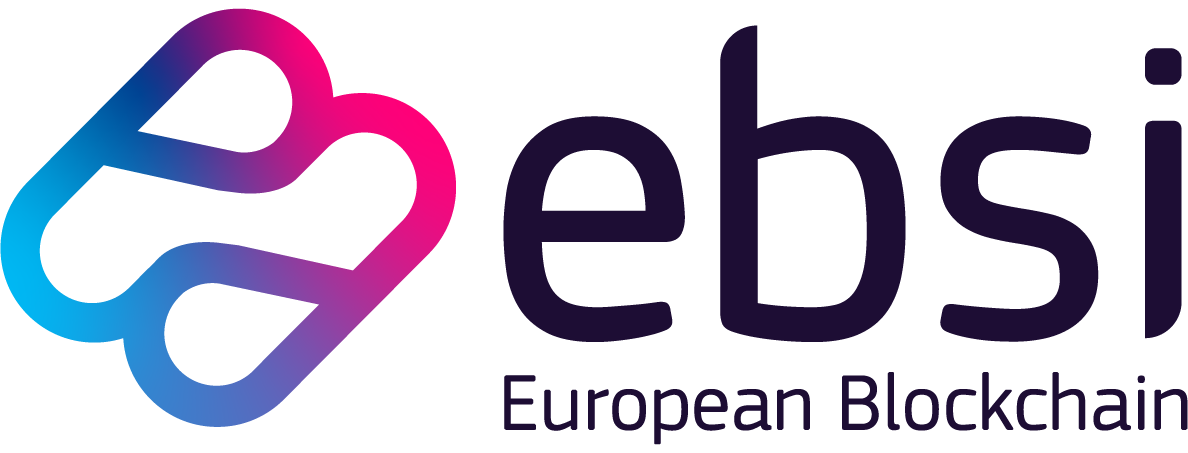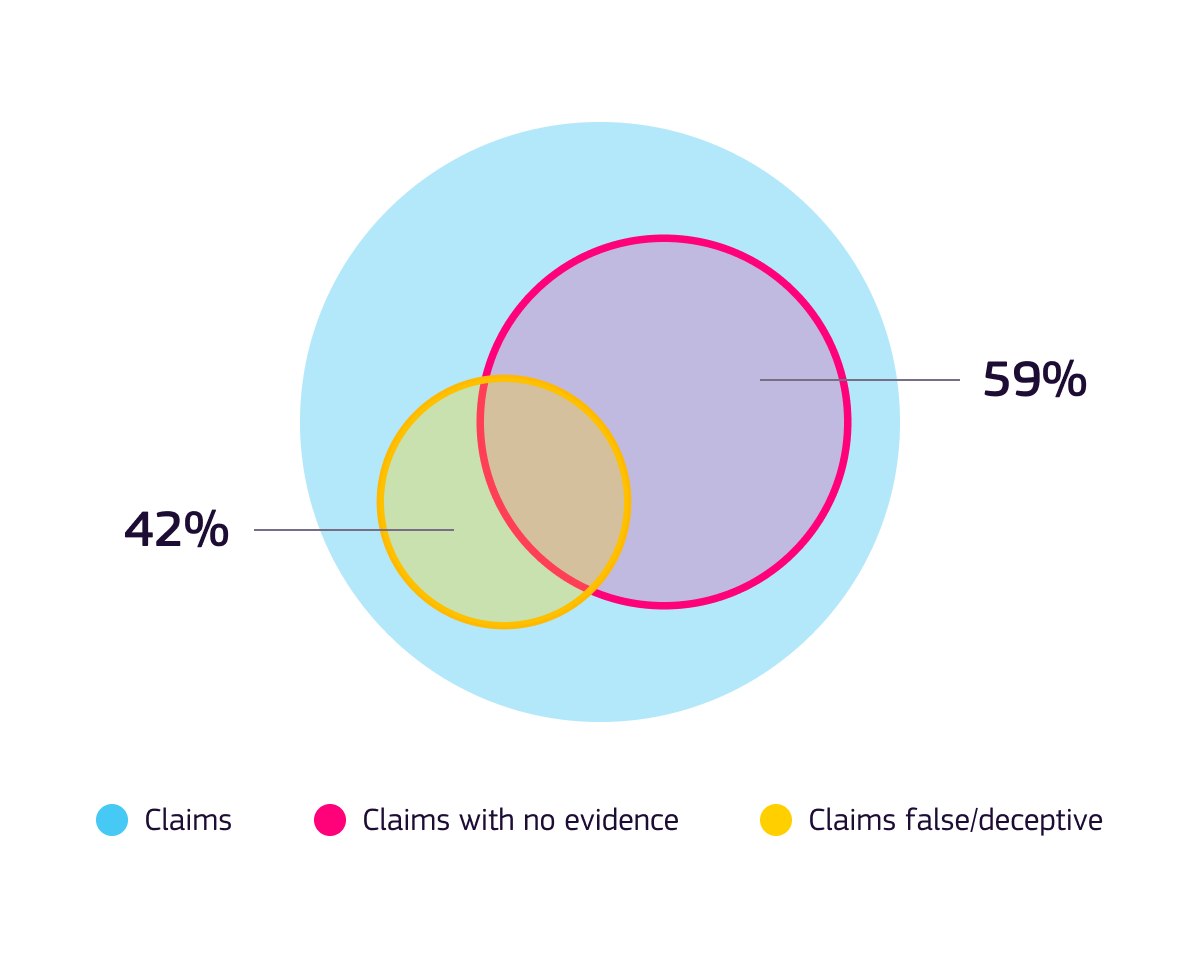EBSI Projects
Make information easy to verify and almost impossible to fake.
Making information easy to verify and almost impossible to fake, for better mobility of our citizens, better quality of our products, and better economic development of our enterprises. That’s the challenge more than 150 organisations took when experimenting with EBSI in different sectors. We welcome you to meet the ecosystem, listen to what they did, and co-create the future, together.

The challenge of verification.
When a person claims to own a certain credential (and when a certain physical or digital credential states some information), in theory, any relying party should be able to verify it. There are many different processes of verification such as physical checks, digital signatures, issuer callbacks, centralised public registries, or authentication via an intermediary authentication authority.
However, not all kinds of proof (or verification methods) have the same value and not all can be trusted. Society still faces many challenges, including privacy loss for users, claim unverifiability, fraud, processing inefficiencies, and high costs.
These challenges affect the verification of documents, products, and legal entities.
Experienced with fraud in the past two years, by groups of scams and fraud
One in Five Europeans Have Experienced Identity Theft Fraud | News | FOCUS ON Business - Finanso 2020
Verification of documents
Let’s take the verification of documents (of natural persons). The verification of credentials attributed to natural persons, such as diplomas or certificates, is still a challenging task, especially across borders.
Europol states that widespread technological means allow fraudsters to design and print high-quality forged or fake physical documents (Europol 2022).
Whilst according to some estimates, 20% of Europeans experienced identity theft fraud between 2018-2020 (Finanso 2020).This has resulted in drastic increases of identity scams and fraud using stolen or sourced data to clear authentication processes for financial gains (ITRC 2023).
The issue is not just the forging of documents but the very lack of an infrastructure capable of verifying documents attributed to natural persons in the first place.
Verification of products
Similar challenges are also true for the verification of products. Product verification processes to mitigate counterfeiting are not effective at keeping up with the complexities of European cross-border economies.
According to a 2021 report by the European Union Intellectual Property Office (EUIPO) and OECD, 5.8% of products imported into Europe are counterfeit and are therefore potentially not compliant with European health and safety regulations (European Commission 2022).
As a result, in 2022 customs authorities around the EU seized 86 million counterfeit items worth EUR 2 billion (European Commission 2023).
Products imported into Europe
Source: 2022 European Commission Report
Environmental claims
Source: 2021 European Commission Report on Greenwashing in the EU
Verification of legal entities
In the EU landscape, there are currently no digitally uniform, cross-border processes that support the verification of legal entities and their attributes. For example, not having the ability to verify that claims or actions made by legal entities reflect the true state of affairs increases the commercial incentive for those entities to engage in fraudulent behaviour to appear conformant to EU regulations.
According to a 2021 report by the European Commission investigating greenwashing in the EU, 59% of environmental claims identified by the study showed no evidence and 42% were deemed false or deceptive (European Commission 2021). The verification of legal entities, their attributes or statements made is fundamental to decreasing fraudulent behaviour by European organisations.
The challenges of third-party verifiers
Nowadays, certain digital platform providers offer high-speed verification services and reliable trust infrastructures. For example, intermediary platforms (like Google, Meta, social media platforms, IT providers, etc.) provide efficient third-party verification services. However, third-party intermediaries create dependencies and put the privacy of user data at risk.
The vision
What if we told you that fast and reliable verification services are possible without the dependencies and privacy risks of third-party platforms?
Today, with the help of Web3 technologies such as Digital Wallets, Verifiable Credentials (VC) and Blockchain, both citizens and businesses can reliably prove to anyone interested in claims about themselves or verify the provenance and authenticity of products. All without the need for third-party intermediaries.
Imagine a world where information is easy to verify, almost impossible to fake, and puts citizens back in control of their data. Such a world can become a reality with the European Blockchain Services Infrastructure (EBSI).

The Projects
Today EBSI is a growing ecosystem of +350 public and private organizations from +30 countries. They are mobilised through 3 main programs:
Digital Europe Programme
Early Adopters Programme
EC-based Projects
Making information easy to verify and almost impossible to fake, for better mobility of our citizens, better quality of our products, and better economic development of our enterprises. That’s the challenge more than 150 organisations took when experimenting with EBSI in different domains.
Check out what they have done below.
Access to digital public services


Public Administrations Interoperability
Accessing citizen facilities between regional and national governments. (2023/2024)

Municipality Credentials
Student benefits using municipality credentials. (2021 / 2022)

European Qualification Passport for Refugees
Refugee EQPR credentials for European University applications. (2021 / 2022)
Education and lifelong learning


Educational Identification
Shaping the simplicity and reliability of cross-border student eIDs throughout Europe. (2023/2024)


University Alliances
Offer foreign university students seamless access to courses, workshops or services.

Transcript of Records
Receiving a master's diploma after receiving a transcript of records from Erasmus. (2021 / 2022)


Micro-credentials
Helping lifelong learners access recognised micro-credentials for their educational achievements (2023-2024)

Micro-credentials
PhD student applications for specific courses in a foreign country. (2021/2022)


Formal Accreditation and Recognition
Facilitating the use of digital student university certificates for cross-border use. (2023/2024)

Bachelor / Master Degree
Applying for a PhD with a bachelor/master's degree from a foreign country. (2021 / 2022)


Vocational Education and Training
Assisting European citizens with the use of vocational education and training certifications across Europe. (2023/2024)
Employment


Employment credentials
Helping labour force mobility across borders by facilitating the verification process of work certificates. (2023/2024)

Licence to Practice
Job applications with a degree from another foreign country. (2021 / 2022)

Resumé Credentials Application
Establishing a unified digital system across Europe for the storage and exchange of various educational and professional qualifications.


Certificate of Good Conduct
Helping organizations, associations, and employees deploy a seamless pre-employment screening process to create a safer work environment.
Travel


Digital Ferry Onboarding Experience
Improving all aspects of traveling experience via ferry for EU students, by simplifying by simplifying the onboarding experience.
Intellectual property


Open Rights Data Exchange
Framing data management practices in the creative industries to improve authoritative and updated information on rightsholders, terms and conditions, and licensing opportunities.









